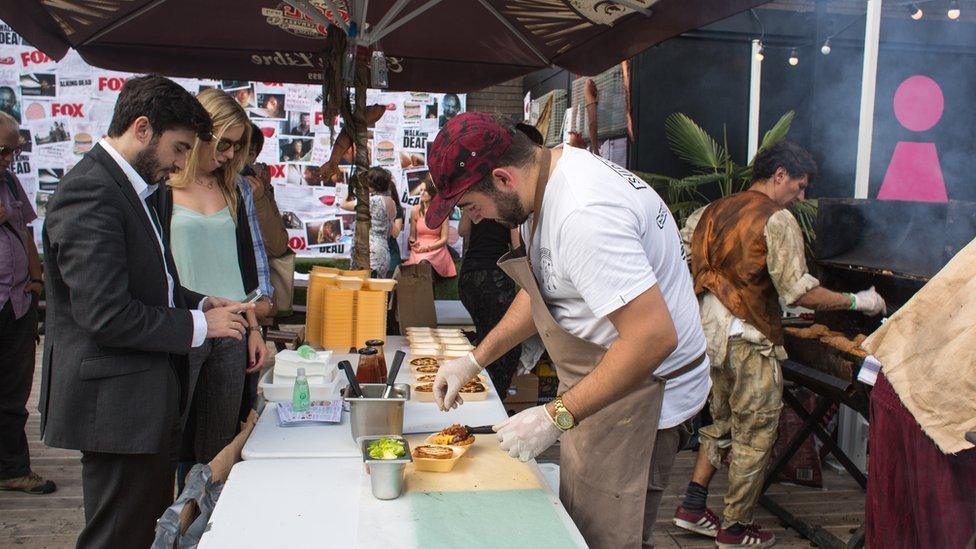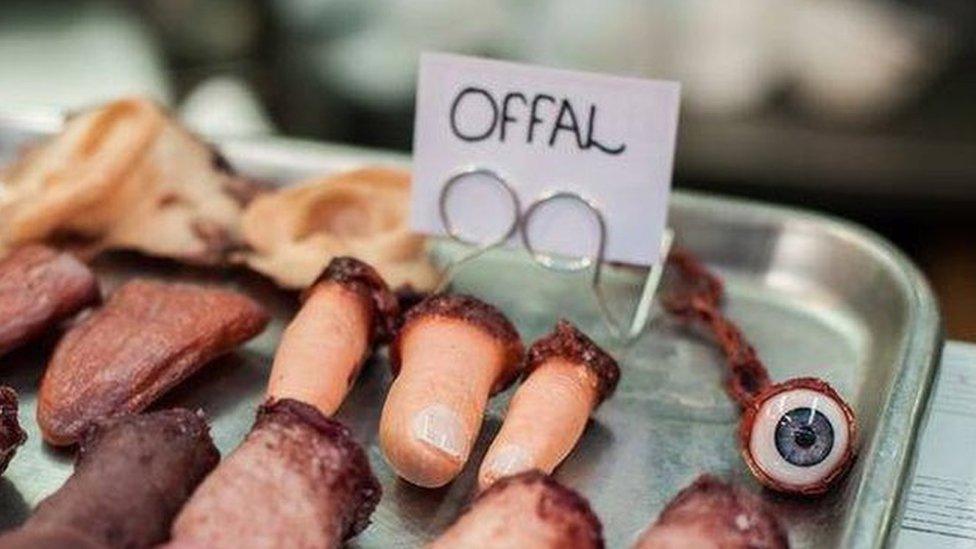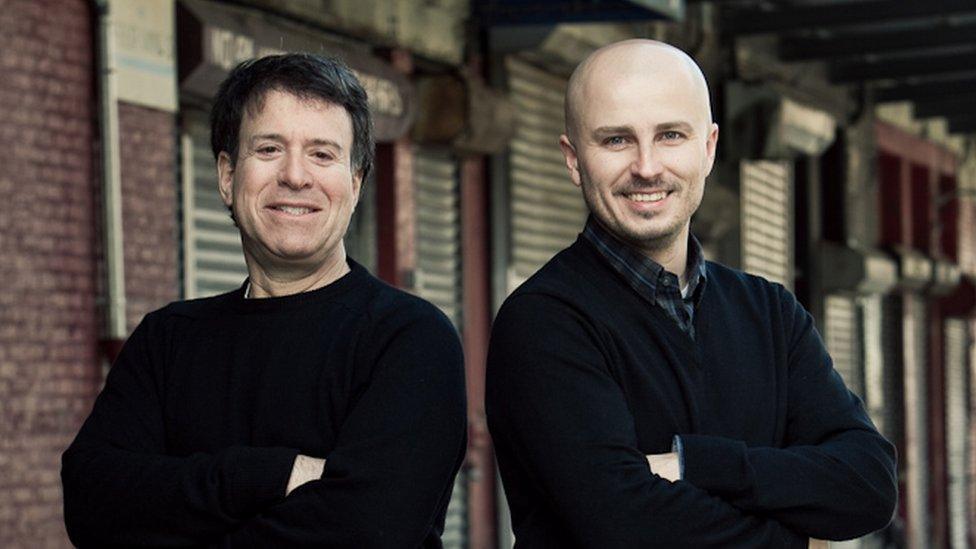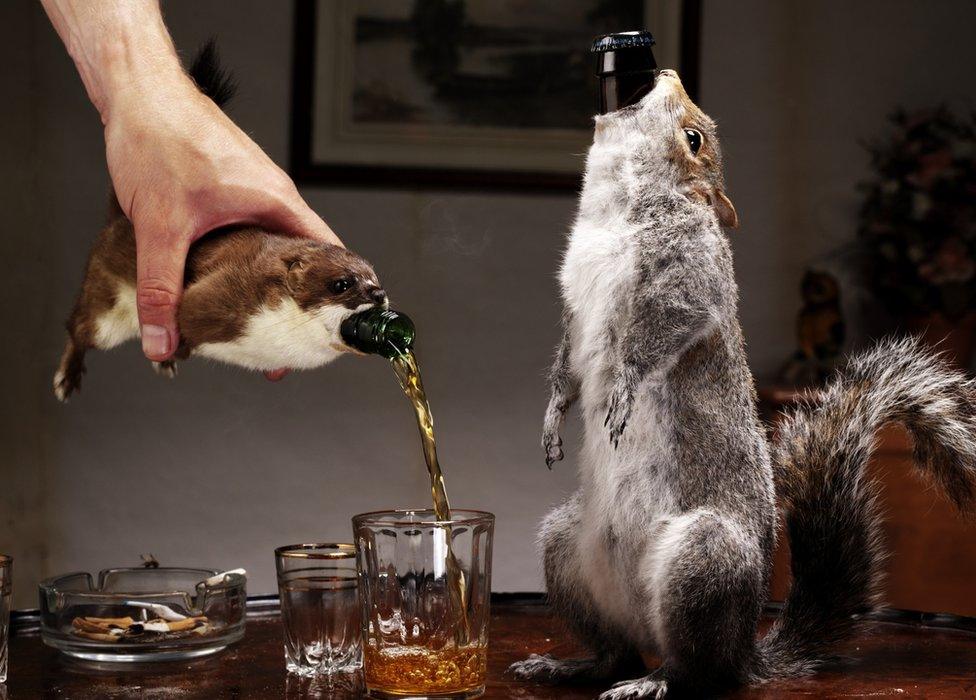Shock tactics: How to make a big splash with a small budget
- Published

Ketchup with your human-flesh burger, sir?
If you were walking down Brick Lane in East London this time last year I can guarantee you would remember one particular stall.
On offer, some quite repulsive fare: burgers made of human flesh.
All rather stomach churning, even after you realise they are actually made of veal, pork and bone marrow - although the taste was based on first hand accounts of cannibalism - and were a publicity stunt to publicise a television horror show.
The event, as was intended, generated masses of coverage online, in newspapers and on television. All of it for free.
Yet the concept didn't come from a huge ad agency with a multi-million pound budget. It was the brainchild of a one woman publicity machine, London-based, Emma Thomas, who works under the title Miss Cakehead.
A couple of years earlier she went even further down the road of bad taste, organising a pop-up shop selling what appeared to be freshly-butchered human body parts. This included arms, hands, feet and even penises which in fact were crafted from prosciutto ham, pork ribs and other ordinary meat cuts. For that, Ms Thomas wrote the press releases in her own blood.

Prosciuttio, veal, and pork ribs engineered to look rather unappetising
And hers is not the only small scale business learning how to generate vast amounts of publicity by going out on a limb.
Pushing boundaries
Earlier this year, New York creative partnership Thinkmodo unveiled the latest in a line of headline grabbing videos. "The Super Strong Meter Maid", has had more than a million and a half Youtube hits and miles of column inches both in the UK and the US. As in all Thinkmodo's campaigns it relies on a carefully rigged public staging of an event that makes onlookers gasp.
In this one, publicising an online car dealership start-up, a traffic warden confronted by a rude taxi driver, picks up and moves his cab with seeming superhuman strength.
But it's rather tame compared to Thinkmodo's previous videos. One was nicknamed the "Devil Baby Attack" and was part of a promotion for horror film, "Devil's Due." The stunt featured a pram with a doll inside which cried and then, when approached, rose up suddenly and vomited. Another involved turning a cafe upside down, as an actor, posing as a customer, was apparently possessed by an evil spirit.

One thing Emma Thomas and Thinkmodo have in common is their size. Although Ms Thomas first started out working for big PR agencies she became frustrated with their way of working.
"Ideas that I thought were really strong weren't even being presented to clients and the mentality was just too old-fashioned and conservative. I thought there's got to be a better way of doing this."
Her approach is paying off. She isn't short of commissions. She keeps her overheads low, working on an average budget of around £15,000 per project ($23,000) and makes a reasonable income of around £30,000 a year.
'Fun, original, shocking'
Yet despite her success, Ms Thomas is loathe to expand her team of one.
"I prefer to work alone; I don't think many people would 'get' how I think. In any case, I don't think you need to be a massive organisation to attract big clients."

Emma Thomas thinks not many other people "get" how she works
Kirsty Howell, head of publicity at Fox International Channels UK agrees that it is creativity that matters more than size.
She was the one who commissioned Ms Thomas to create the human-flesh burger event to publicise series five of the TV horror drama Walking Dead.
"I wanted to do something fun, but shocking, so I searched on the internet and found Emma's site. Her work was really original and it didn't matter that she was a one man band."
'Sick and twisted'
But is there a risk of controversial ideas backfiring?
"I've never had bad press. I have had bad public comments though," says Ms Thomas.
"People have said I'm sick, twisted, clearly disturbed and should be arrested, especially with the human butchery shop."
Kirsty Howell says it's all down to context.
"The flesh burgers were in keeping with the theme of the programme," she says. "You need to research the programme and understand it. As long as you do that anything goes."
It's the same attitude that has made PR stunt aristocracy out of the creative duo behind Thinkmodo.
Michael Krivicka and his business partner James Percelay started the company in 2011. Their trick for ensuring their videos go viral is not always subtle but it works. But whilst YouTube hits are always welcome, according to Mr Krivicka, news coverage is the real test,
"We judge our success by the free media we get. Talk shows for example often have a slot where they talk about what's trending online."

James Percelay and Michael Krivicka are the creative minds behind Thinkmodo
The devil baby video got more than 50 million YouTube hits and appeared on the US talk show "Ellen" and dozens more news and current affairs programmes.
Going too far
Yet despite the partnership's success, its attitude to expansion is similar to Ms Thomas'; they want to stay small.
"Being smaller helps us to be more nimble and reactive," says Mr Krivicka.
But it also means there are fewer checks and balances to stop you making mistakes, something Mr Krivicka admits has happened.
"We were asked to make a promotional Youtube video for the gangster revenge film 'Dead Man Down.' We wanted to see what people's reaction would be to a real life murder so we staged one in a public lift.
"That generated a lot of press, some of it negative. Looking back I think we crossed the line, it was too real, something that could actually happen. It was a lesson for us so now we only do stunts which are literally unbelievable."

You can grab plenty of attention without turning stomachs, it's all about finding the right idea
Risky personality
Small operators do have one significant advantage over bigger rivals according to Gordon Young, Editor in Chief of marketing magazine, the Drum.
"They have less to lose because they don't have shareholders to keep happy," he says. But that doesn't mean more established companies can't learn a few tricks.
He cites the example of Brewdog, a beer brand which has made an art form of attention-grabbing publicity, in a slightly different vein.
"They're a brand challenger so they want to get noticed. They have a licence to take more risks and that's part of their personality."

Indeed Brewdog is arguably just as famous for its marketing as for its beer. According to James Watt, 'Captain' of the company, the approach has led to commercial success,
"Our PR gets people talking," he says.
Inevitably if these strategies are used too often the audience will eventually become jaded and harder to impress. But not before companies have tried everything they can to compete for attention.
Brewdog's "The End of History" was marketed as the world's most expensive and strongest beer at 55% ABV and £500 or £700 a piece. Bottles were sold encased inside either a taxidermy stoat or squirrel.
'We're not controversial for controversy's sake," says James Watt.
"[It] is about showing people the extremes to which you can take beer, and packaging it in a way that is artistry in one of its weirder forms. We want to make exciting beers that get people talking."